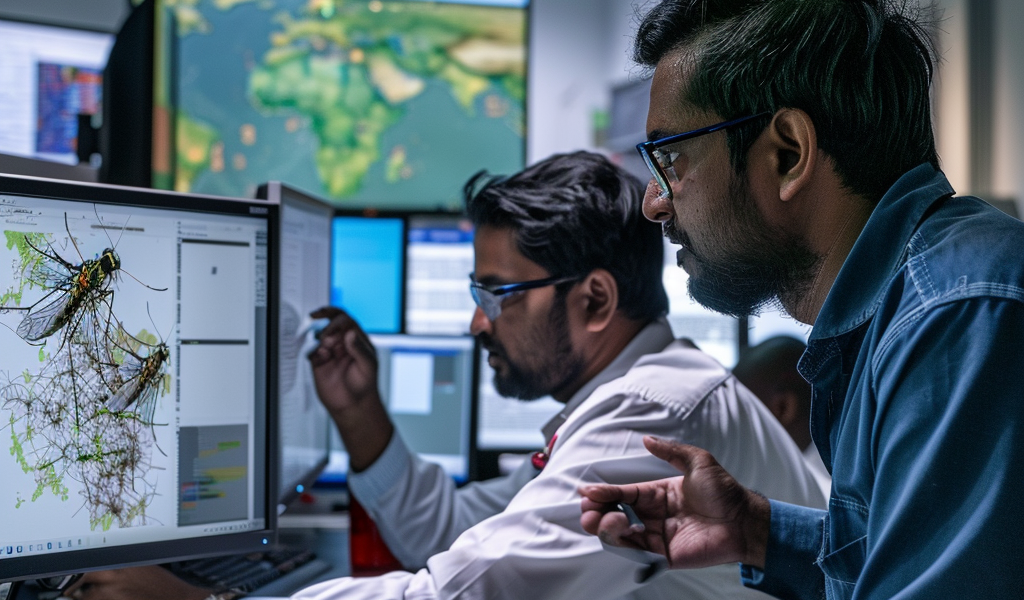University of South Florida researchers are utilizing artificial intelligence to transform mosquito surveillance in the fight against malaria in Africa. Led by Ryan Carney, associate professor of integrative biology, and Sriram Chellappan, professor in the department of computer science and engineering, the interdisciplinary team aims to advance malaria research and develop innovative solutions to target malaria-infected mosquitoes in real-time.
The project, supported by a $3.6 million grant from the National Institute of Allergy and Infectious Diseases, is part of an international initiative known as EMERGENTS (Enhancing Malaria Epidemiology Research through Genomics and Translational Systems). This project will establish an International Center for Excellence for Malaria Research in west-central Africa, with expertise in Nigeria and Cameroon.
In 2022, there were 249 million new cases of malaria globally, resulting in 608,000 deaths, with Africa bearing the brunt of the disease, accounting for 95% of the world’s malaria deaths. Over the next five years, the center will focus on evidence-based strategies for malaria eradication and elimination, including training African scientists, studying insecticide resistance, and monitoring the spread of Anopheles stephensi, a dangerous urban malaria vector that has recently appeared in Africa.
The insights gained from the center will not only benefit Africa but also have implications for the United States. Given Florida’s climate and high volume of international travelers, the state remains crucial for monitoring mosquito-borne illnesses.
Carney and Chellappan will spearhead the project’s image-driven mosquito surveillance by training local scientists to utilize citizen science through mosquitodashboard.org, a global mosquito-tracking platform they created in 2022 with support from the National Science Foundation. The dashboard consolidates mosquito observations from various sources into an interactive, real-time data portal.





